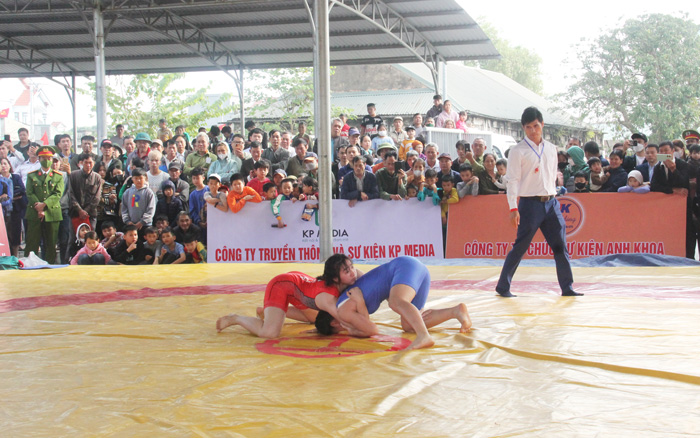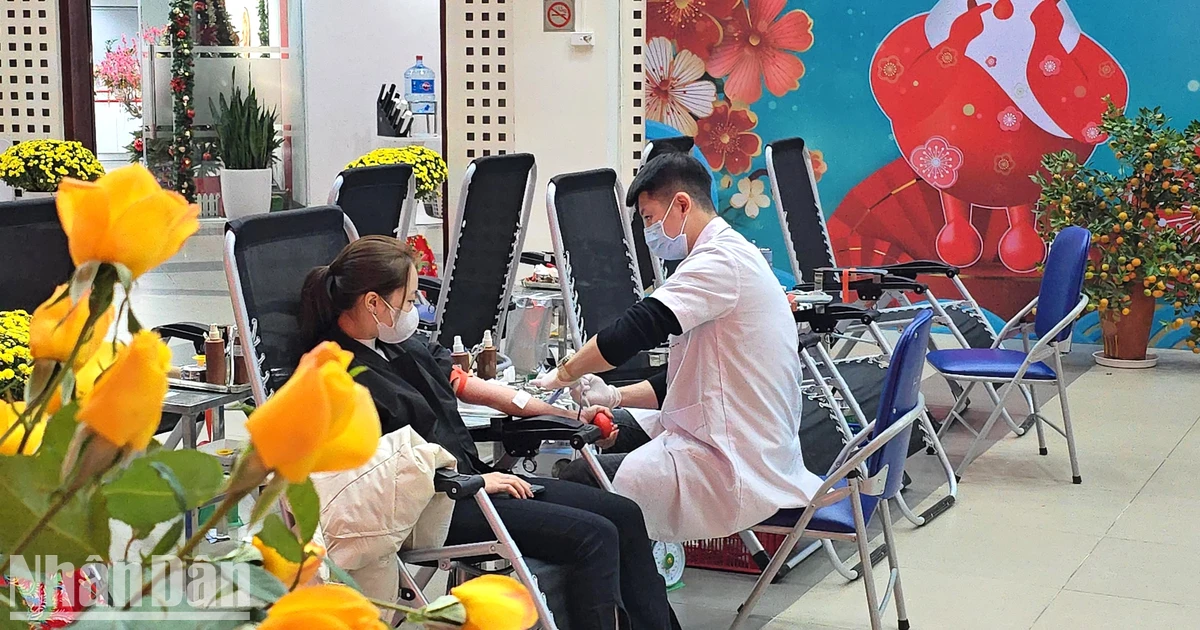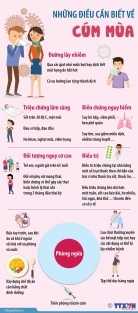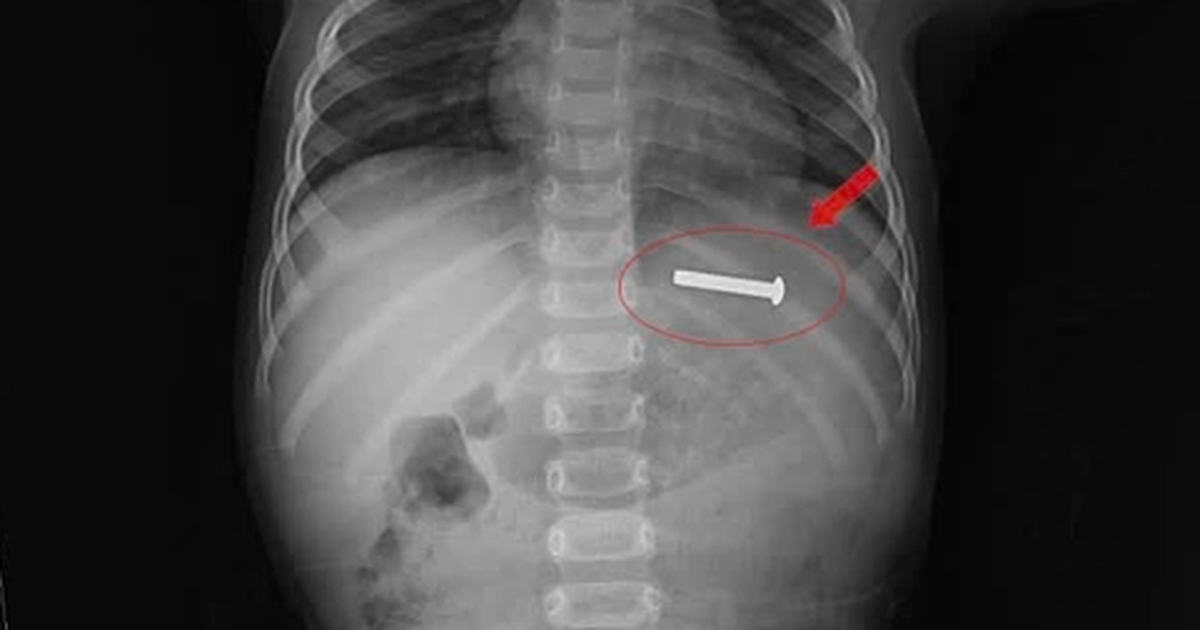In cold weather, many people have runny noses and sneeze, thinking they have the flu, so they buy medicine to take. When they have persistent facial pain and stuffy nose, they go to the doctor and find out that allergic rhinitis has become complicated.
In cold weather, many people have runny noses and sneeze, thinking they have the flu, so they buy medicine to take. When they have persistent facial pain and stuffy nose, they go to the doctor and find out that allergic rhinitis has become complicated.
Cold weather causes symptoms of nasal congestion, runny nose, and sneezing, which can easily lead to patients confusing allergic rhinitis with the flu. Over the past month, some medical facilities have regularly admitted patients with allergic rhinitis who self-treated the flu, causing the disease to not improve but instead worsen, leading to complications such as sinusitis, nasal polyps, etc.
 |
| Overuse of vasoconstrictor sprays causes damage to the nasal mucosa, excessive dilation of the nasal turbinates, and nasal turbinate hypertrophy. |
Allergic rhinitis and the flu have many similar initial symptoms, but their causes and treatments are completely different.
Allergic rhinitis is caused by the body's overreaction to allergens such as pollen, dust, pet dander, or changes in the weather. When exposed to allergens, the body's immune system immediately activates to fight these agents, and the nose is the main organ that receives the defensive response.
Patients often sneeze continuously, especially in the morning, have clear mucus, itchy nose, red eyes, itchy eyes, watery eyes. Allergic rhinitis does not cause fever, is not contagious and does not require antibiotics.
The flu is caused by a viral infection, progressing slowly over 1-3 days, often accompanied by fever, sore throat, fatigue, occasional sneezing, thick green or yellow mucus, and body aches. The disease can heal itself after 7-10 days if treated properly.
Confusion between these two diseases is very common. Using antibiotics to treat allergic rhinitis on your own is ineffective and carries the risk of causing antibiotic resistance as well as serious side effects, affecting liver and kidney function.
In addition, if patients abuse nasal sprays containing vasoconstrictors, not only will they be ineffective, they will also damage the nasal mucosa, increasing the risk of complications.
Uncontrolled allergic rhinitis can lead to sinusitis, pharyngitis, laryngitis due to mouth breathing, nasal polyps, or even lower respiratory tract infections. At the same time, the patient will spend money and time treating complications.
For example, in the case of Ms. MNB (38 years old, Ho Chi Minh City), a month ago, when the weather changed, she had symptoms of continuous sneezing, stuffy nose, and clear runny nose.
Thinking she had a common cold, she bought antibiotics and painkillers at the pharmacy to treat it. However, after a week, the symptoms did not improve but became worse with a persistent stuffy nose, facial pain, and difficulty breathing, so she went to the hospital for examination.
An ENT endoscopy was performed and Ms. B. was diagnosed with allergic rhinitis, but due to incorrect self-treatment, the disease developed into acute sinusitis. Ms. B. was prescribed medication to treat sinusitis and had to return for follow-up visits as scheduled to monitor the disease and prevent it from recurring and progressing to chronic sinusitis.
Another case is Mr. NVQ (45 years old, Dong Nai), an office worker who often works in an air-conditioned room. He often has a stuffy nose and sneezes early in the morning.
Thinking that the symptoms were just a common cold, he bought cold medicine and a nasal spray containing vasoconstrictors to relieve nasal congestion. After 2 months, the symptoms did not improve but the nasal congestion got worse, and using the vasoconstrictor nasal spray still did not help. Mr. Q. went to see a doctor.
After an ENT endoscopy and clinical examination, the doctor diagnosed him with chronic allergic rhinitis with complications of nasal turbinate hypertrophy, requiring surgical correction of the nasal turbinate. The abuse of vasoconstrictor sprays caused damage to the nasal mucosa, causing the nasal turbinate to expand excessively, causing nasal turbinate hypertrophy.
Dr. Vo Ba Thach, ENT Department, Tam Anh General Clinic, District 7, said that if you have symptoms such as continuous sneezing, runny nose, and itchy nose, you should think about allergic rhinitis. If accompanied by fever, body aches, and thick nasal discharge, it could be a sign of flu or bacterial sinusitis.
"As soon as symptoms appear, patients should go to medical facilities for proper diagnosis and treatment. Absolutely do not use drugs on your own, especially antibiotics, and avoid abusing vasoconstrictor nasal sprays without a doctor's prescription," Dr. Thach advised.
Dr. Thach also said that there is now a testing service that uses 60 available allergen samples to determine the cause of allergies in the body.
This test focuses on food groups such as shrimp, crab, fish, squid, milk, apples... and some allergens from the external environment such as dust, cat and dog hair, cosmetics, medicine, pollen.
A positive test result helps the doctor determine the patient's allergy level, immunity and appropriate disease prevention methods. A negative result means that the tested person is not allergic to the allergen samples.
Source: https://baodautu.vn/thoi-tiet-lanh-de-nham-lan-viem-mui-di-ung-va-cam-cum-d244248.html

























































Comment (0)